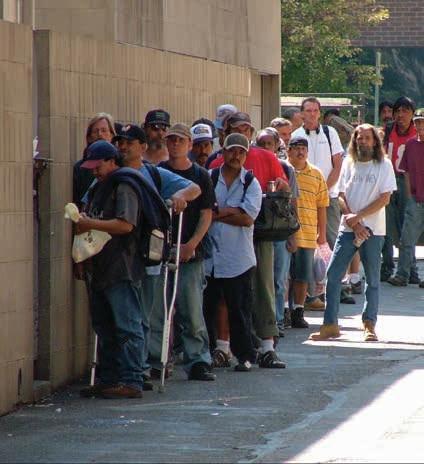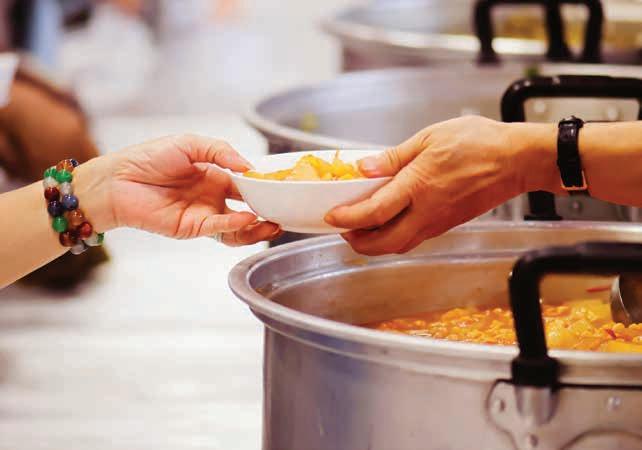
3 minute read
Goodr as it gets
this: food from rich to poor It don’t get no Goodr than
HEATHER LEAH SMITH reports on a woman who singlehandedly takes on hunger and want, with blockchain as an ally
Advertisement
A “DO-GOODER” from an early age, Jasmine Crowe founded a blockchain-based company in 2017 to combat hunger across the US.
Crowe serves as CEO of Goodr, the Atlanta-based company leveraging blockchain technology to divert excess food from restaurants and supermarkets to the tables of the needy. She’s a seasoned warrior in the fight against hunger, starting as a soup kitchen volunteer and later spearheading her own grassroots charity events.
In 2013, Crowe was organising pop-up restaurants in areas with high homelessness in Atlanta, Baltimore, Charlotte, New Orleans and Washington, DC.
The “aha” moment for Crowe came when the initiative — which she led through her previous non-profit, Sunday Soul — was captured on video and went viral on social media.
“People were asking which restaurants were donating the food, but the reality was nobody was donating,” she shared in an interview with the non-profit ReFED (Rethink Food Waste Through Economics and Data).
“I was couponing and pricematching and cooking all the food myself and loading it into my car and going downtown and feeding people.”
She did some digging and was floored to discover about 72 billion pounds of food is wasted in the United States each year.
That costs the US economy an estimated $218bn — and Crowe found this a moral affront in a society where nearly 12 percent of households are food-insecure. She fumed even more as she
Jasmine Crowe: feeding the needy from way back
thought of the environmental impact of that.
“We have the waste of the food itself, the waste of all the money associated with producing this now-wasted food and the waste of labour with all of the above,” she explained in a 2018 TED Talk that’s already logged over a million views.
“And then there's the social inequity between people who really need food and can't get it and people who have too much and simply throw it away.”
Crowe saw it as a problem of logistics, not scarcity. Enter Goodr, which harnesses the power of blockchain technology to create indelible, transparent ledgers of the journey — and impact — of donated foods. Food businesses sign-up for Goodr’s paid service and use the app to click-add foods for pick-up.
A network of logistics providers collects the donations and transports them to a non-profit, aged home or foodbank within a five to 10-mile radius.
Clients track their donations on the app dashboard, where deep analytics render reports on sustainability impacts, surplus inefficiencies and tax rebates. Data-backed reports demonstrate
clients’ commitment to positive climate action, detailing the amount of water or labour saved by their donations.
The donations qualify clients for big tax rebates and the reports unlock hidden savings. Crowe estimates that Goodr saves clients $14 for every dollar spent with the company.
STREET CRED Goodr has raised $1.25m in funding and partnered with several national chains, who appreciate the bottom-line help the company provides — but benefit even more from the “street cred” the association has garnered.
“[Businesses are] seeing that, next year, 50 percent of all the workforce is going to be millennials, and they care a lot more about supporting businesses that are doing the right thing,” she warned.
“They recognise the need for new attitudes around food waste, recovery, recycling and being good stewards of the environment.”

Urban poverty in the US: queues for soup kitchens still exist











